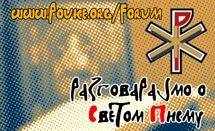Hebrews
Hebrews, Chapter 7
For this Melchizedek, king of Salem and priest of the Most High God, met Abraham returning from the slaughter of the kings and blessed him.
To him Abraham also gave a tenth of all. [He was] first by interpretation king of righteousness, and after that also king of Salem, which is king of peace,
without father, without mother, without descent, having neither beginning of days nor end of life, but made like the Son of God, [he] remains a priest continually.
Now consider how great this man [was], to whom even the patriarch Abraham gave the tenth of the spoils.
And truly they [who are] of the sons of Levi, who receive the office of the priest, have a commandment to take tithes of the people according to the Law, that is, from their brothers, though they come out of the loins of Abraham.
But he whose descent is not counted from them received tithes from Abraham and blessed him who had the promises.
And without all contradiction the lesser is blessed by the better.
And here men who die receive tithes; but there he [receives them], of whom it is witnessed that he lives.
And if I may say so, Levi, also, who receives tithes, paid tithes in Abraham.
For he was still in the loins of his father when Melchizedek met him.
Therefore if perfection were by the Levitical priesthood (for under it the people received the Law), what further need [was there] that another priest should rise after the order of Melchizedek, and not be called after the order of Aaron?
For the priesthood being changed, there is of necessity a change made in the law also.
For He of whom these things are spoken belongs to another tribe, from which no man gave attendance at the altar.
For [it is] evident that our Lord sprang out of Judah, of which tribe Moses spoke nothing concerning priesthood.
And it is still far more evident, since there arises a different priest after the likeness of Melchizedek,
who is made, not according to the law of a fleshly commandment, but according to the power of an endless life.
For He testifies, "You [are] a priest forever after the order of Melchizedek."
For [truly there] is a putting away of the commandment which went before, because of the weakness and unprofitableness of it.
For the Law made nothing perfect, but the bringing in of a better hope [did], by which we draw near to God.
And inasmuch as [He was not made priest] without an oath
(for those priests were made without an oath, but this one was made with an oath by Him who said to Him, "The Lord swore and will not repent, You [are] a priest forever after the order of Melchizedek,")
by so much was Jesus made a surety of a better covenant.
And they truly were many priests, because they were not allowed to continue because of death;
but He, because He continues forever, has an unchangeable priesthood.
Therefore He is able also to save to the uttermost those who come unto God by Him, [since He] ever lives to make intercession for them.
For such a high priest became us, [who is] holy, harmless, undefiled, separate from sinners and made higher than the heavens,
who does not need, as those high priests, to offer up sacrifice daily, first for his own [sins] and then for the people's sins. For He did this once for all, when He offered up Himself.
For the Law appoints men high priests who have infirmity, but the word of the swearing of an oath, after the Law, [has consecrated] the Son forever, having been perfected.







